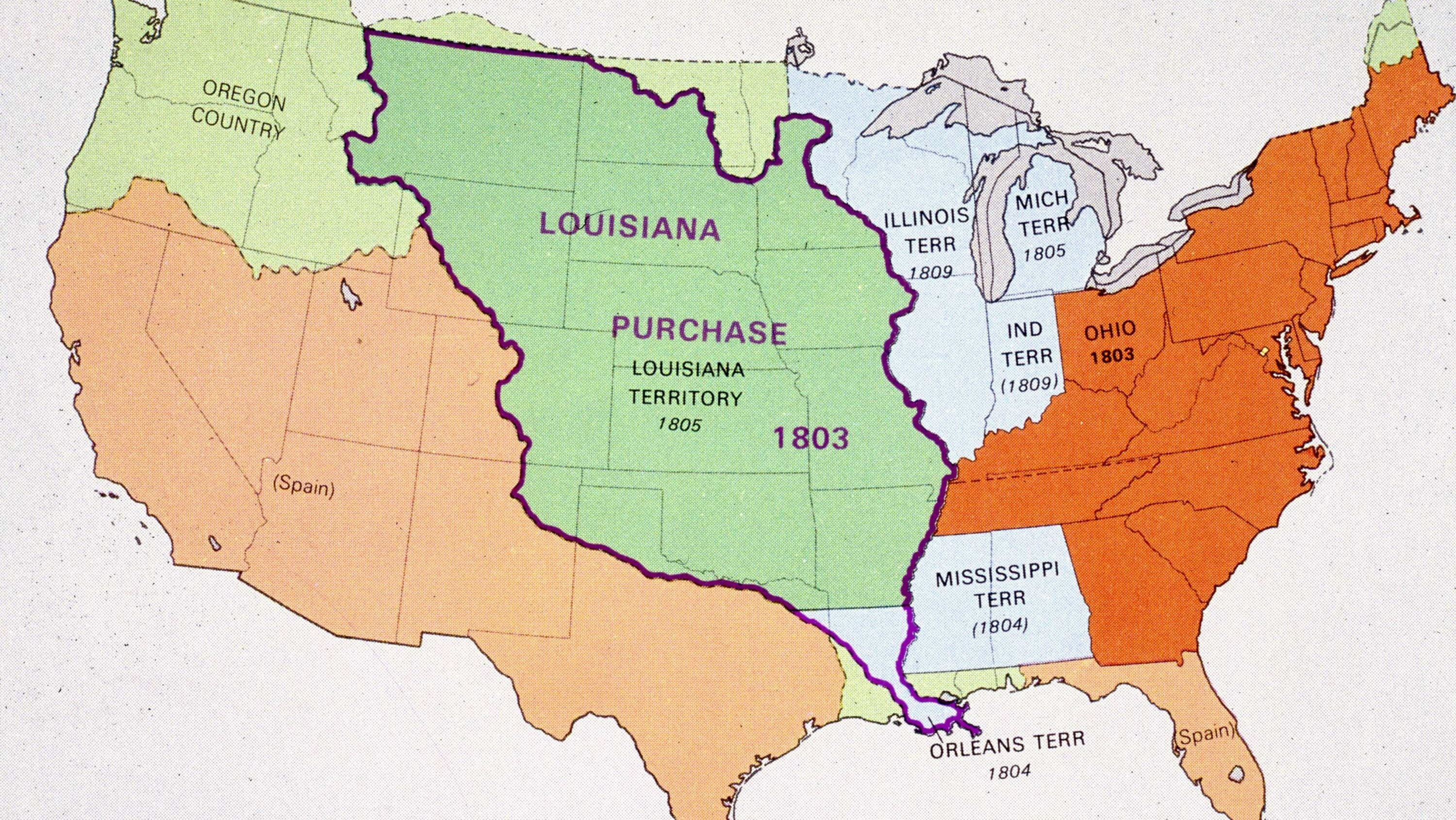Contents
The Louisiana Purchase of 1803, a defining moment in American history, doubled the nation’s size for a mere three cents an acre. While seemingly a remarkable bargain, this acquisition of resource-rich territory from France sparked significant opposition from various groups concerned about its cost, constitutionality, and potential impact on the nation’s future. Even President Thomas Jefferson, the architect of the deal, grappled with uncertainties surrounding this monumental land acquisition.
 alt text: A map of the Louisiana Purchase territory
alt text: A map of the Louisiana Purchase territory
Federalist Resistance
The most fervent opposition originated from the Federalist Party, Jefferson’s political rivals. Federalists envisioned a nation focused on urban development, seafaring, and manufacturing, and feared the vast new territories would draw workers away from these crucial industries towards an agrarian lifestyle, which Jefferson and his Democratic-Republican party championed. This westward migration, they believed, would weaken their political stronghold in New England and undermine the region’s economy.
The $15 million price tag, though a steal in terms of land acquired, also raised concerns among Federalists. Financing the purchase through European banks further added to the national debt, fueling their criticism of excessive spending.
Concerns Over Governance and Republican Ideals
Critics questioned the feasibility of governing and defending such an immense territory, fearing it would jeopardize the survival of the fledgling republic. Influenced by Enlightenment thinkers, many believed republics needed to be relatively small and homogenous to maintain their political virtues. The rapid expansion of the Roman Republic into an empire served as a cautionary tale, highlighting the dangers of centralized power and the potential erosion of liberties.
 alt text: A portrait of Alexander Hamilton
alt text: A portrait of Alexander Hamilton
Adding to these anxieties was the denial of self-governance to the inhabitants of the newly acquired lands, including Native Americans and French and Spanish residents of New Orleans. This lack of popular sovereignty, critics argued, contradicted the principles of the American Revolution and resembled colonial rule. Furthermore, abolitionists feared the expansion of farming into the new territories would exacerbate the issue of slavery, a concern that would later fuel the Missouri Compromise and ultimately contribute to the Civil War.
Constitutional Quandary
The Louisiana Purchase sparked a constitutional debate that forced members of both parties to grapple with their core principles. Federalists, typically proponents of a strong executive branch, argued the president lacked the constitutional authority to acquire new territory. Jefferson, a staunch advocate for limited government, initially shared this view, believing a constitutional amendment was necessary. However, faced with the possibility of Napoleon reneging on the deal, Jefferson ultimately prioritized the acquisition over his constitutional concerns. He pushed the purchase through Congress with minimal debate, prioritizing the perceived benefits of the deal over a strict interpretation of the Constitution.
Conclusion
The Louisiana Purchase, despite its ultimate contribution to American expansion and power, faced significant opposition at its inception. Concerns about cost, governance, constitutional authority, and the potential impact on slavery and national identity fueled the debate. Understanding these challenges provides valuable insight into the complexities of this pivotal moment in American history and its lasting consequences.